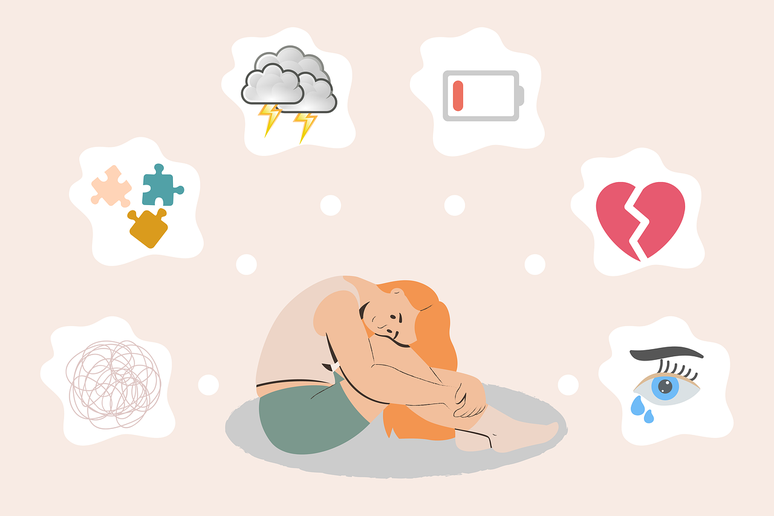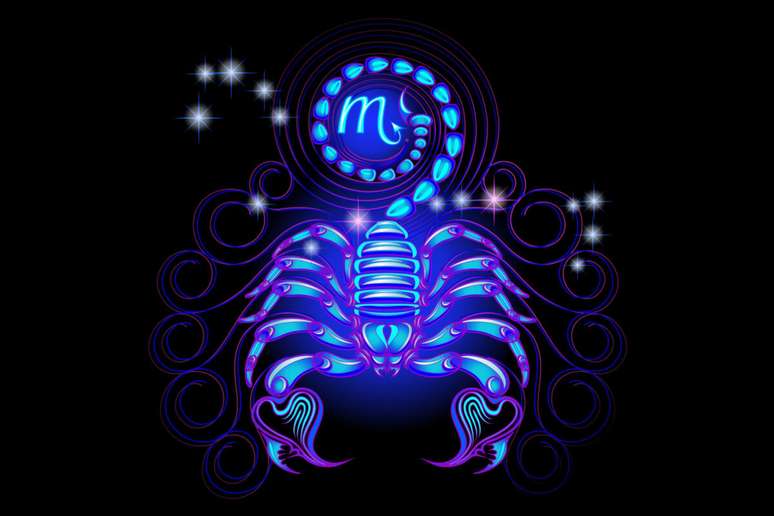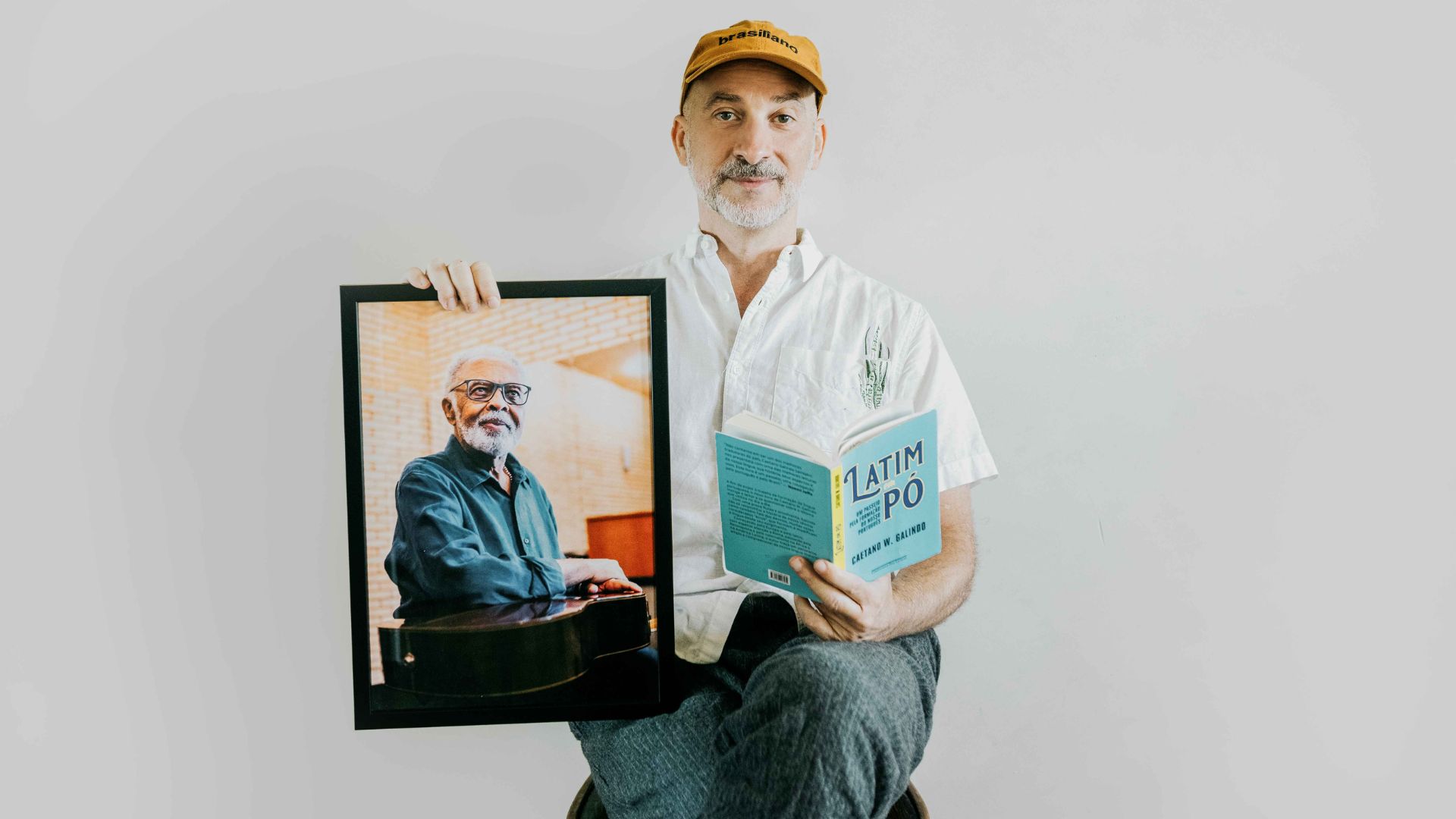Although many Brazilians suffer from disorders, society still surrounds the problem with prejudice, according to data from the World Health Organization (WHO), approximately one billion people have at least one problem related to mental health. Brazil leads the ranking of cases of anxiety and depression in Latin America, for a total of almost 19 […]
Although many Brazilians suffer from ailments, society is still surrounded by prejudice
According to data from the World Health Organization (WHO), approximately one billion individuals have at least one mental health problem. Brazil leads the ranking of cases of anxiety and depression in Latin America, with almost 19 million people suffering from these conditions by the end of 2022. Despite these numbers, mental health care is still taboo for much of the population.
Information is still missing on mental health
For psychologist Alana Anijar, stigma and lack of understanding of mental disorders and emotional suffering are some of the reasons why prejudice continues to persist. “For many years, mental illnesses have been misinterpreted, associated with weaknesses of character or spirituality. Misinformation generates fear and discrimination, perpetuating the cycle of stigma,” he explains.
“Mental disorders are health conditions, like any other, that require treatment and understanding.”
It will have consequences
It is important to say that neglecting mental health care out of fear or shame in seeking treatment can have serious consequences. “Suffering in silence can worsen symptoms and lead to serious complications, such as social isolation, the inability to work or study and, in extreme cases, the risk of suicide,” warns the professional.
This occurs mainly due to fear of judgment from others, which prevents people from seeking the help they need and results in a worsening of their quality of life. “It is essential to create a welcoming and non-judgmental environment, where people feel safe in seeking professional support,” advises the psychologist.
There has been progress
Another survey, carried out by the consultancy firm Alvarez & Marsal, showed an annual growth of 12% to 15% in the last four years in healthcare in Brazil due to mental disorders. Nonetheless, according to data from the annual global report, the country still has the third-worst mental health index in the world State of mind of the world 2022.
Alana points out that, drawing a parallel with the past, people have always seen topics related to psychological well-being as something to hide. Most people with mental disorders were often isolated or institutionalized. While it’s still not ideal, there have been significant advances in how society views mental health. “Science and medicine have evolved, allowing for more accurate diagnoses and effective treatments. Today there is greater openness to debate on these topics and awareness campaigns have helped reduce stigma and promote acceptance,” he points out.
The Internet can go in two directions when it comes to mental health
Alana concludes, therefore, that social networks and the media have a dual role in this journey, which, on the one hand, help to broaden the discussion, allowing people to share their experiences and find support in online communities. On the other hand, they can also spread misinformation and encourage prejudice, especially if used to spread stereotypes or simplify complex issues. “It is important to consume content from reliable sources and encourage open and informative dialogue,” warns the professional.
Education is the way
In short, we need to understand that going through periods of suffering or emotional vulnerability is as normal as suffering from a physical illness and should be treated with the same naturalness. A powerful alternative to fighting prejudice, according to Alana, is education. “Open conversations about mental health should be encouraged at home, school and work. We can share accurate information, challenge stigmas and offer support to those who are struggling. Additionally, support policies that encourage access to treatment for mental health can make a difference,” concludes the psychologist.
“Promoting empathy and understanding, listening without judgment and being present for the people in our lives are some of the steps to breaking this taboo.”
Call CVV
The Center for Valuing Life (CVV) provides emotional support and suicide prevention. They voluntarily and free of charge serve all the people who want and need to talk, in complete confidentiality via telephone, email, chat and Skype. 24 hours a day every day of the week.
Mental health help in the public network
SUS Psychosocial Care Network (RAPS) services help people in crisis situations. The RAPS includes points of care such as primary health units/family health strategy (UBS/ESF), psychosocial assistance centers (CAPS), drop-in units (UA), residential therapeutic services (SRT), homecoming program (PVC ), emergency units (UA), SAMU, General Hospitals and Community and Cultural Centres.
Source: Terra
Ben Stock is a lifestyle journalist and author at Gossipify. He writes about topics such as health, wellness, travel, food and home decor. He provides practical advice and inspiration to improve well-being, keeps readers up to date with latest lifestyle news and trends, known for his engaging writing style, in-depth analysis and unique perspectives.









